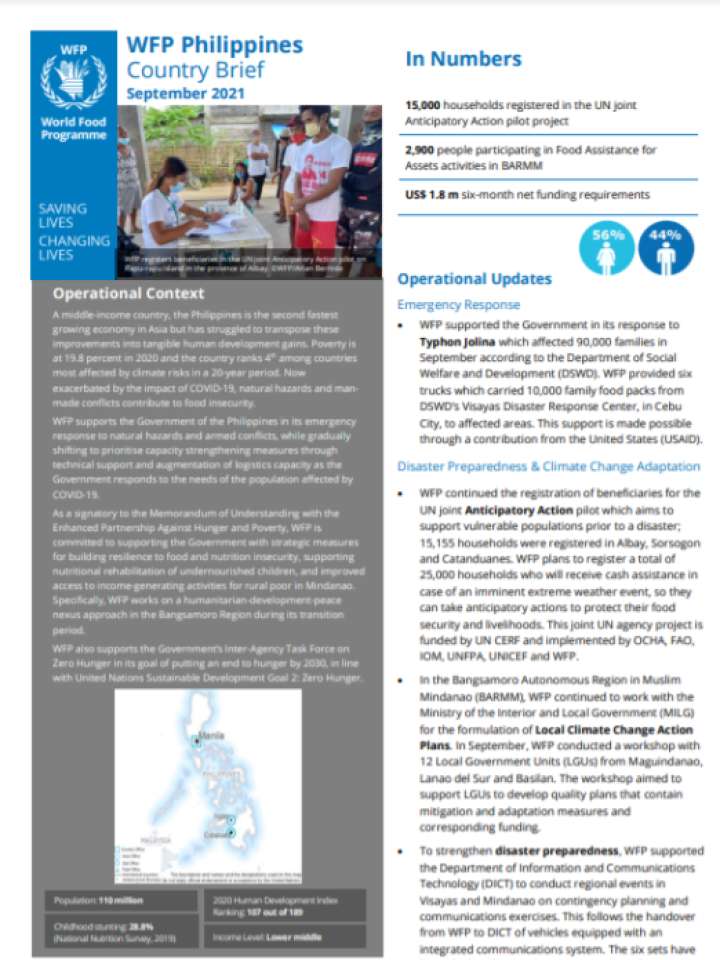World Food Programme Philippines country Brief September 2021
This report summarizes the food security and agriculture situation in the Philippines as well as the World Food Programme's (WFP) operation in the country in 2021. A middle-income country, the Philippines is the second fastest growing economy in Asia but has struggled to transpose these improvements into tangible human development gains. Poverty is at 19.8 percent in 2020 and the country ranks 4th among countries most affected by climate risks in a 20-year period. Now exacerbated by the impact of COVID-19, natural hazards and manmade conflicts contribute to food insecurity. As a signatory to the Memorandum of Understanding with the Enhanced Partnership Against Hunger and Poverty, WFP is committed to supporting the Government with strategic measures for building resilience to food and nutrition insecurity, supporting nutritional rehabilitation of undernourished children, and improved access to income-generating activities for rural poor in Mindanao. Specifically, WFP works on a humanitarian-development-peace nexus approach in the Bangsamoro Region during its transition period.
The reports notes the WFP's emergency response activities, particularly in its response to Typhon Jolina which affected 90,000 families in September. The WFP also continued the registration of beneficiaries for the UN joint Anticipatory Action pilot which aims to support vulnerable populations prior to a disaster; 15,155 households were registered in Albay, Sorsogon and Catanduanes. WFP plans to register a total of 25,000 households who will receive cash assistance in case of an imminent extreme weather event. To strengthen disaster preparedness, WFP supported the Department of Information and Communications Technology to conduct regional events in Visayas and Mindanao on contingency planning and communications exercises. In the Bangsamoro Autonomous Region of Muslim Mindanao, WFP and local government units are implementing Food Assistance for Assets activities for 2,900 participants; including decommissioned combatants, indigenous people and conflict-affected communities. Furthermore, WFP is conducting a gender analysis to identify opportunities for WFP to better support gender equality and women empowerment in the Philippines. The WFP supports the Government’s Inter-Agency Task Force on Zero Hunger in its goal of putting an end to hunger by 2030.
Explore further
